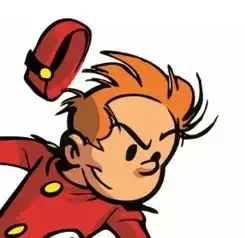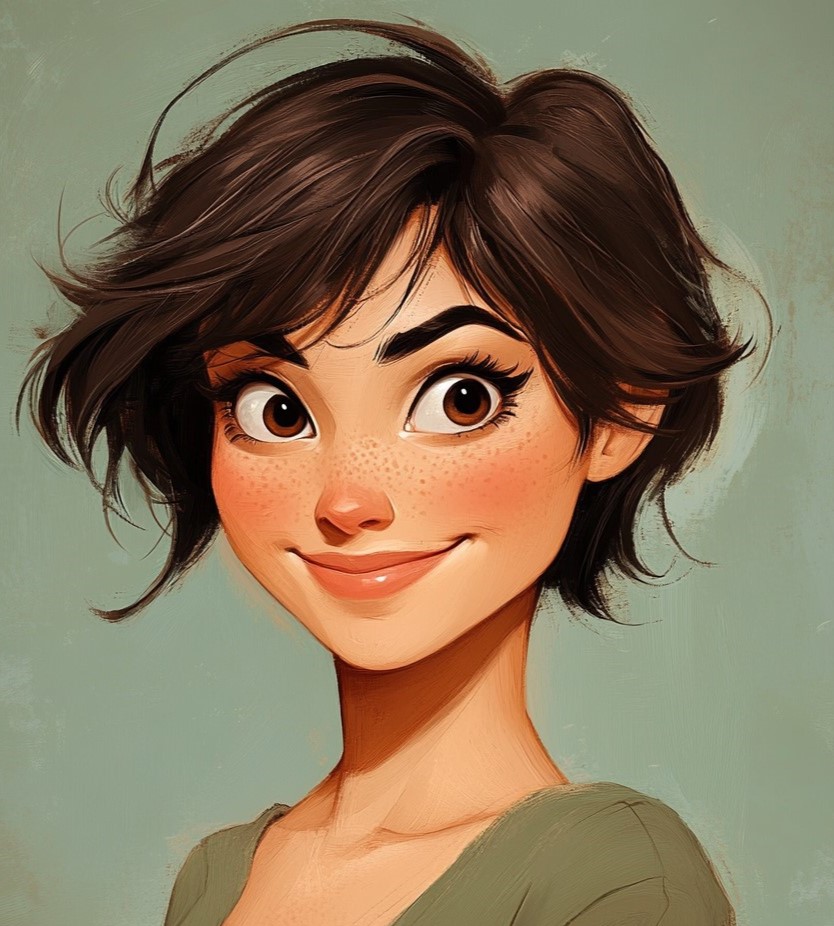As video games develop more and more over the years, companies have been making them more and more realistic-looking. I can guess this is related to expectations, but am I the only one who doesn’t care about graphics? We could be using the same processing power to store worlds that have as much exploration potential as the Earth itself if we weren’t afraid to save on processing power by going back to 8-bit.
Photo realism with no artistic direction is pointless.
Say that in a flight simulator forum. ;)
I know it’s mostly in jest but I can’t help replying lol.
I am a Euro Truck Simulator 2 enjoyer. Simulators are kind of another beast but I think “be as close to real life” can be a considered an artistic direction. It’s bad when a game isn’t being a simulation but pushing polygon count for its sake.
We probably can consider simulators as edge cases I guess lol.
And people wonder why Wind Waker did so well compared to Twilight Princess.
Twilight princess had double the global sales of WW though lol
Possibly because one was on a console that sold “okay”, and the other was on one of the biggest-selling systems of all time
Not unlikely. Still means TP was better commercially than WW. I love them both
As someone else pointed out, that is false.
What IS true is that Wind Waker seems to generally be remembered more fondly than Twilight Princess. Plus it aged much better.
I’m not saying it did better than Twilight Princess, just that they’re comparable.
I care about art direction. Graphical capability can give digital artists more freedom especially for photorealistic styles. But few games actually make good use of such artistic freedom.
My favourite 3D game graphics is Super Mario Galaxy. Other than that I mostly prefer game graphics from 16-bit consoles.
I do care about art direction, I just care so much more about the world in the game that if whole parts of the in-game world can come at the same processing cost as a little realism, I’d choose more chunks of the world.
I’m on the same boat. Photorealism only gets you so far, and pixel-art like graphics have their own charm. .
That and it doesn’t effect gameplay quality. A fun enough game retains its addictiveness no matter how real the visuals look.
i think stardew valley is itself proof that detailed graphics are not a requirement for good game play.
That and Undertale.
Stardew looks fantastic, what are you saying?
that detailed graphics are not a requirement for good game play
They’re not, but your example is a game with detailed graphics…
yep, that is an interesting opinion on graphics.
…It’s not really an opinion, but okay
whatever floats your boat semantic master
It’s not a proof, it’s an exception.
is earth proof of life across the universe or are we an exception?
It’s becoming ever more obvious as graphics improve that it doesn’t really matter what the game looks like as long as the game is fun.
Companies better have a damn good reason to spend production resources on high end graphics given how little they matter compared with thematic harmony, creativity and originality.
At this point probably to look like they can compete with other games, which might explain the fact nobody complains indie games seem primitive.
I’m with you. I think “peak graphics” for me was around XBox 360. I’d much rather have resources used for better gameplay, larger worlds, more expansive story, etc. Also, just less resource usage in general; I stopped PC gaming forever ago because I got sick of chasing the GPU dragon.
Not sure I’d want to go all the way back to 8-bit, but somewhere between there and XB360 would be fine. That said, I do like seeing new “retro” games that are 8-bit era appropriate.
Somewhere between 8-bit and XB360 would be PS1.
I dislike PS1 graphics. Too many games use 3D graphics for no reason, and they used dark and muted colours to be “realistic”.
N64 games are usually more colourful and more pleasing, even though they lack texture.
XB360 had enough power to finally show 3D without feeling “trying too hard”.
I meant it as more of a range than a hard point on a line, lol.
But yeah, PS1 games are pretty rough to look at.
Within the range, I would give: SNES: 10/10 (my favourite game graphics of all time. e.g. FF6) N64:6/10 (1st party games have good art direction) PS1: 5/10 (could be lower, but saved by games with pre-rendered backgrounds) PS2: 7/10 (some outstanding graphics such as Shadow of the Colossus)
Wait, was Pokémon Red/Blue 8-bit or 16-bit? You got me second-guessing now.
8-bit. They were released for the original Gameboy.
Speaking as a story-heavy RPG enthusiast, so my focus is more on story-telling and exploration. I don’t think it’s the graphics that’s holding back the exploration potential, but rather the complexity of actually creating huge game worlds. You tend to end up with either a procedural generated world without a lot of cohesion, or one that’s a mile wide but an inch deep in interactivity.
Just look at Baldur’s Gate 3. It’s a hugely complex and reactive game world, but it’s locations and the way you are allowed to explore them are reduced to three linear chapters. Even if you switched to, say Baldur’s Gate 2 era graphics, it would still not be possible to create a game in a single huge explorable world with the same level of complexity and story telling.Though I’m definitely with you on scaling down the graphics in exchange for richer and more interactive worlds, I do think there’s a hard limit on how much better those worlds would get.
Don’t forget though there’s more than one way to make interactivity. The original Legend of Zelda was the 8-bit equivalent of Breath of the Wild and offered a lot of intrigue in each stage when it came to where to go next by having the right cause and effect system.
“Function over form” is a mantra I live by. This is reflected in the software I use/make, as well as the games I play.
What software do you make?
Nothing noteworthy. Mostly just utility stuff that I use myself, or work related stuff. A typical example is a self-test script that I wrote in perl because I’m lazy, and somehow it became a company standard and made it’s way into written procedures - It just checks various services and misc network stuff, and let’s you know if there’s something obviously wrong happening.
Too realistic graphics take me out of the game, are visually overwhelming, and make it hard to see certain important details.
If I have to pick up a quest item, I don’t want it’s stone texture blending into the dirt floor. I want it highlighted so I can see the damn thing is interactable.
Reading this, I realize I’m surprised more games don’t have colourblind accommodation.
I want a Fun game. Art (graphics) can help and be supplementary towards making a game fun, but it is not the end all be all. Some fun games I’ve played use intentionally shitty graphics to add to it, other games are so unfun because all they do is try to wow you with the images.
I’ve found lately the indie Dev sphere has been more focused on fun games and AAA studios have more focused on graphics alone. I think this mostly happened because early on when (video) games where becoming popularized hardware was increasing at such a rapid pace and graphics genuinely could be made better, not necessarily as just a stylistic choice. You could show off the new hardware capabilities with good story for more appeal. This also made them lazier over the years as those big hardware and software leap allowed them to focus on the consumer draw utilizing showcase imagry over story. As hardware advances slowed and graphic leaps became smaller the gains just aren’t there. And you’ve left many consumers with nostalgia over the fight for when graphic improvements meant something, in a time when good story/gameplay was also pretty necessary.
On the bright side, games with intentionally shitty graphics are very memeable, especially Undertale.
Some fun games I’ve played use intentionally shitty graphics to add to it
If it adds to the experience, wouldn’t the graphics then be good?
The graphics are good in the artistic sense, but not in terms of what’s considered conventionally good graphics. Zelda BotW would be conventionally good graphics, as that’s what would make most people think of it as visually appealing and therefore enjoyable. Undertale, a great example, does not.have conventionally good graphics but the total theme and portrayal makes the non-cenventional good.
Most of what I was speaking to was the use of conventionally good graphics at the expense of story or enjoyment factor of the game/gameplay itself
You should play Nethack
I can attest to how neat Nethack is.
While I agree with the OP, I don’t like dungeon crawlers due to the way you lose several hours of Progress for a simple mistake.
But that is why I play NetHack. It’s like an endurance test
Good for you. I play games to have fun, not to test my endurance.
I care about the art on an individual level and as a whole when compared to how it adds to the game. Applying a strict criteria of detail and other metrics is pointless when games are meant to be works of art and passion. Its too subjective to judge it. Like judging Salt & Sanctuary solely on its Dishwasher inspired art would be a misstep. The art adds to the bleakness of the world while also maintaining the studio’s style
I remember when Wind Waker first came out, the graphics were something everyone complained about, and now two decades later, everyone misses that style of visual representation.
Graphics are important. Polygon count is not. There is no real value in being able to see each individual eyelash, but I also don’t think there’s much benefit to making every game look like the original Lode Runner.
Wouldn’t it save data power? I would imagine that a game with the simpler visuals from the golden age of video games would cost a machine less bytes to perform.
It depends on a lot of factors. Minecraft, despite its signature simplistic artstyle, takes a surprising amount of CPU power to run - a lot more so if you run mods. Even a Minecraft server, which doesn’t render graphics at all, takes a beefy machine and a lot of RAM.
It’s as much about graphical fidelity as it is quality of code, and unfortunately, there are a lot of game studios that don’t seem especially bothered about optimising their games. To the extent that you can fill, say, an Xbox’s hard drive with only two or three AAA games.
All that said, you’re right in that simpler graphics in general mean less work for the graphics card to do. Just that it’s not the only factor.
I care – all else held equal, I’d rather have snazzier graphics – but I feel like there’s pretty strongly diminishing returns.
And because resources are finite, all else isn’t held equal. You’re giving up time spent working on gameplay or whatever to stick fancier graphic assets in.
Some of my favorite games don’t have much by way of graphics.
I do kind of wish that I could get upscaled versions of a number of games that I enjoy with low-resolution pixel graphics, though – I’d like “high-resolution DLC” to be a thing for successful games like that. Think Caves of Qud or something like that. IIRC Cave Story did that, along with a handful of other games. Would like to have higher-res versions of Balatro. Same for Noita, though there I guess the resolution hooks into the game mechanics, so have to be careful how to deal with that.
I’ve also seen some games with untextured polygons that have worked out pretty well. Star Fox for the Super Nintendo and Avara and Flying Nightmares for the classic Mac came from an era when texturing wasn’t always possible. Carrier Command 2 is much newer, and uses only limited texturing.
Minecraft went a long way with very technically-limited graphics.
There are a lot of good roguelikes that just use text.
Balatro is a perfect example of a game that I don’t think would benefit at all from better graphics. It’s the gameplay that matters.
Same. Most of the games I like are enjoyable due to the game mechanics. I can attest a Pokémon game for example could even be HTML (the old, old Pokémon MMORPG’s were like this) and still be enjoyable, since it’s at heart about strategy (hence why the TCG exists).
And because resources are finite, all else isn’t held equal. You’re giving up time spent working on gameplay or whatever to stick fancier graphic assets in.
That’s not how game design works. The people who work on the gameplay and level design and dialog are not the same people who work on the graphics. Sure, making the game prettier takes more time, but it has no effect on how long the rest of the game takes to be built. And lower-quality assets can be used in the interim for things like scripting animations, with higher quality assets swapped in later.
Sure, the same people can’t work on the different aspects, but budget for more designers who spend longer making more detailed graphics could be spent on other departments that do affect gameplay.
You could hire more game devs if that money wasn’t spent on excessive prettiness.
And keep in mind, there’s as much cost in an organization for management overhead, if not more.
You are not alone. I do have a lower threshold that is above 8 bit, but I want enough of a difference from real life that I don’t constantly think I’m watching a real person through the eyes of a drone.
I think there are possibilities for games that are 8bit, depending on what the game style is. Some simple games and side scrollers wouldn’t need to be much higher that that.
Edit: but anything that has the depth as part of the gameplay should have at least PS2 level graphics. In driving games, first person shooters, open world games need that clarity to see where I’m going and what I can explore over there
So something like Wind Waker?














